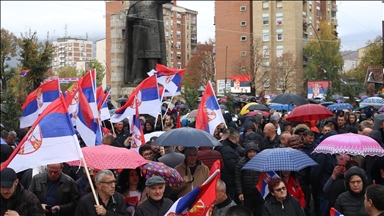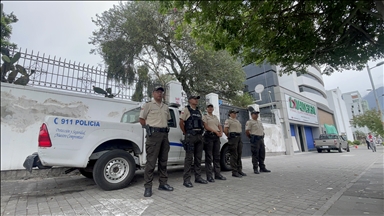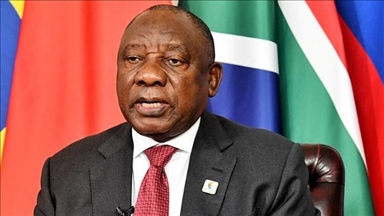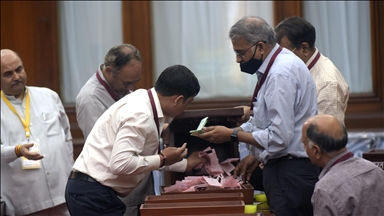Bolivia's ex-leader Morales completes month in exile
Evo Morales resigned from presidency last November, country awaits date for next presidential election
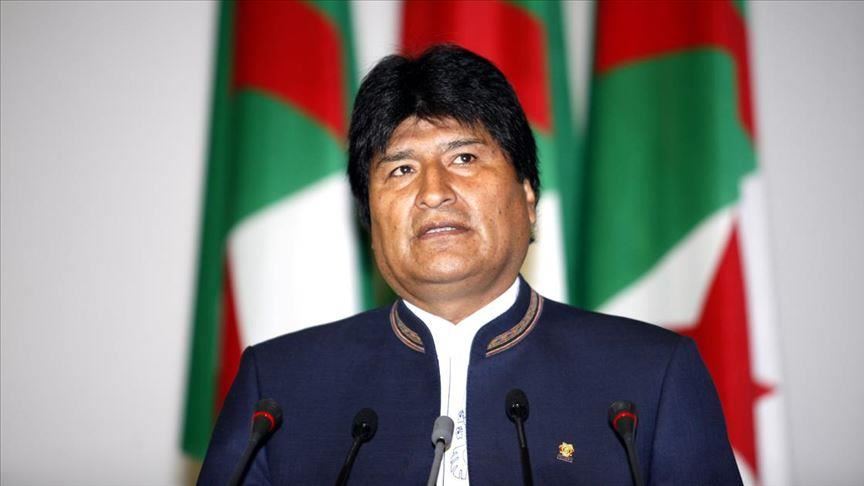
BOGOTA, Colombia
Former Bolivian President Evo Morales, who was forced by the military to resign last month, remains at the center of attention in his country’s politics after completing a month of exile in Mexico.
Morales, the first indigenous president of Bolivia and its ruler for 13 years, has been a strong critic of the interim government headed by Jeanine Anez and the Organization of American States (OAS).
He termed his resignation a coup, declaring that his victory was sealed in elections in October when he was elected for a fourth term.
The interim government has called for an election rerun next year in which Morales will not be allowed to stand as he has exceeded a constitutional limit allowing two terms of office.
In a tweet, his only weapon is exile, the Aymara leader rejected the OAS report which claims there were irregularities in the elections.
According to the report, despite irregularities his rival Carlos Mesa had not won enough votes to form a government.
Morales accused the de facto government of "orchestrating the coup" and "sowing people" against him.
He further claimed that the Anez administration requests military intervention from Israel.
"The de facto government asks for help from the Zionist government of Israel to fight with the [political] left. The coup leaders are violent, do not respect freedom, dignity, and identity with foreign military intervention policies that divide us," said the former president.
Another accusation made by Morales is that the new government is looking for a way to re-establish diplomatic relations with Chile -- a country that Bolivia has no ties with since 1978 due to a territorial dispute.
Morales said it seeks to "deliver our nationalized companies and natural resources like lithium to the Chilean oligarchy".
Newest campaign manager
Last week, while he was in Cuba receiving medical care, Morales was appointed by his Movement for Socialism (MAS) party as the new campaign leader for next year's election rerun.
He will take up his new role from Argentina where he landed on Thursday after being granted asylum.
This symbolic role is decisive for choosing a presidential candidate and achieving the unity of MAS.
The indigenous leader cannot return to Bolivia at this time because the new government accuses him of sedition and terrorism for allegedly inciting violence by instructing his local allies to block roads in the country.
Additionally, the interim government filed a complaint in the International Criminal Court against Morales and some of his closest collaborators for crimes against humanity this week.
Winds of change
During the first month as interim president, Anez has made drastic state decisions at the national and international levels in the country.
She changed the heads of the military and announced that "the Bible returns to the Palace", without acknowledging the secular state proclaimed by the constitution of 2009.
Anez has given clear signs of placing Bolivia in Latin American right-wing politics.
She cut relations with the government of Venezuelan President Nicolas Maduro, an unconditional ally of Bolivia during the last decade. She also recognized Venezuela's opposition leader Juan Guaido as the legitimate ruler -- something that Morales would never have done.
Anez also announced Bolivia's withdrawal from the Bolivarian Alliance for the Peoples of Our America (ALBA), an international forum that promotes regional and economic integration mechanisms outside the U.S. influence.
The interim government is also discussing withdrawal from the Union of South American Nations (UNASUR), another regional cooperation body.
Latin American integration without Washington's political influence was promoted by Hugo Chavez and Fidel Castro. With UNASUR, Bolivia received the support of more than 700 Cuban doctors in its health system.
However, Cuban President Miguel Diaz-Canal said that the doctor's mission deployed in Bolivia had to leave the Andean country because of the "harassment and mistreatment" of the new government.
Despite all those harsh decisions taken by the transitional government, the Anez administration has not set a date for the next presidential elections, which are expected to bring an end to the social and political crisis.
*Jose Baez and Maria Paula Trivino from Colombia, Beyza Binnur Donmez from Ankara contributed the story





